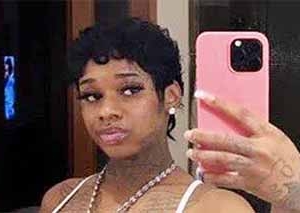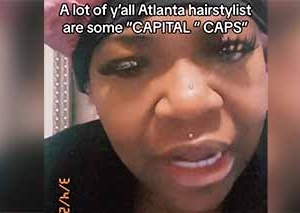
You are probably among the millions of black women who buy your hair weave extensions from a salon, beauty supply store, or out of the trunk of a car. It’s no surprise that beauty supply stores that cater to black women are the #1 importers of hair weave from China.
But have you ever stopped to wonder where your hair weave extensions come from?
After noticing inconsistencies in the hair extensions she purchased for her clients, Riqua Hailes, owner of Just Extensions hair extension bar in Los Angeles, decided to go on an odyssey to Asia to see for herself where the hair comes from.
Hailes traveled through China, Cambodia, Malaysia and India on a journey to discover the origins — and to debunk the myths — of hair weave extensions.
In Phnom Penh, Cambodia Hailes met a woman who provoked mixed emotions inside her: “One woman with a short bob cut came up to me said through my translator, ‘I don’t feel pretty with short hair.’ I took off my hat and showed her my short hair. I said through the translator, ‘You’re certainly one of the most beautiful women I’ve met.’
When she completes her travels through Brazil and Russia, Hailes plans to produce a short film, titled Just Extensions.
From Yahoo Beauty:
“I started my journey in March 2014. My first stop was China, the largest exporter of human hair in the world. China can reproduce almost anything — and hair is no exception. Chinese hair is often considered cheap in the extensions industry because it isn’t donated hair, so in order to be on the same playing field as other exporters, they will market it as Brazilian or Malaysian hair, which can go for twice the money.
“China imports fallen hair, also referred to as non-Remy hair, from India. Fallen hair is dead hair that naturally sheds and is collected from hair salons and hairbrushes. Because the hair’s quality has been jeopardized and matting is likely to occur, non-Remy hair is less desirable in the extensions industry. But China collects this hair, cleans it and mislabels it as being from a higher-quality hair extension source like Brazil, Russia or India.
“If you’re shopping for extensions, and they say they’re shipped from China, it’s probably Chinese hair masquerading as something else. One hair distributor taught me to pay attention to the smell: Fallen hair has a smell of acid and silicone that’s easily recognizable.”
A Fruitless Search in Malaysia
“Malaysian hair is highly advertised by other hair extensions companies, and many of my clients request this hair over others, so I was eager to source the hair directly from Malaysia for my own extensions line. (That’s me in the photo on the right.) What I found in Malaysia was simply the plot behind one large marketing ploy.
“Upon arrival in Malaysia, it was difficult finding women who would speak to me. The majority of Malaysians are Muslim, so women would not speak to me without first asking permission from their husbands. In addition to that frustration, I couldn’t seem to locate any villages or factories selling or cutting hair. I searched the city as well as the countryside with no luck.
”The hair extension industry isn’t regulated, so vendors can label and market hair as they like. After speaking to several hairstylists in Malaysia, I learned that ‘Malaysian hair extensions’ don’t truly exist. Hair labeled ‘Malaysian’ is typically purchased directly from China — buyers beware.”
India & Holy Rituals
“Many Chinese-made hair extensions are falsely marketed as Indian hair. Indian hair, with its thick, dark, slightly wavy texture, is very popular in the hair extension industry. In addition to the luxurious texture, Indian hair is plentiful: Hindu Indians cut their hair as part of a ritual sacrifice to God. In a country of more than a billion people willing to sacrifice their hair for blessing, there’s never a shortage.
“Every day, thousands of pilgrims visit community temples throughout India, waiting in lines for hours to donate their hair. Women, men and children of all ages shave their heads as a symbol of washing away one’s past and starting anew. Hindus believe if they sacrifice their hair to the gods — some do it yearly and others do it just once — their prayers will be answered.
“Temples hold private auctions to sell the hair to vendors. They use the profits to fund community projects like housing, education and health care. India’s poverty level, much like Cambodia’s, is overwhelming and heartbreaking to witness, but I couldn’t find a single person who said she would cut her hair for personal profit.” READ MORE
More from Sandrarose.com:







